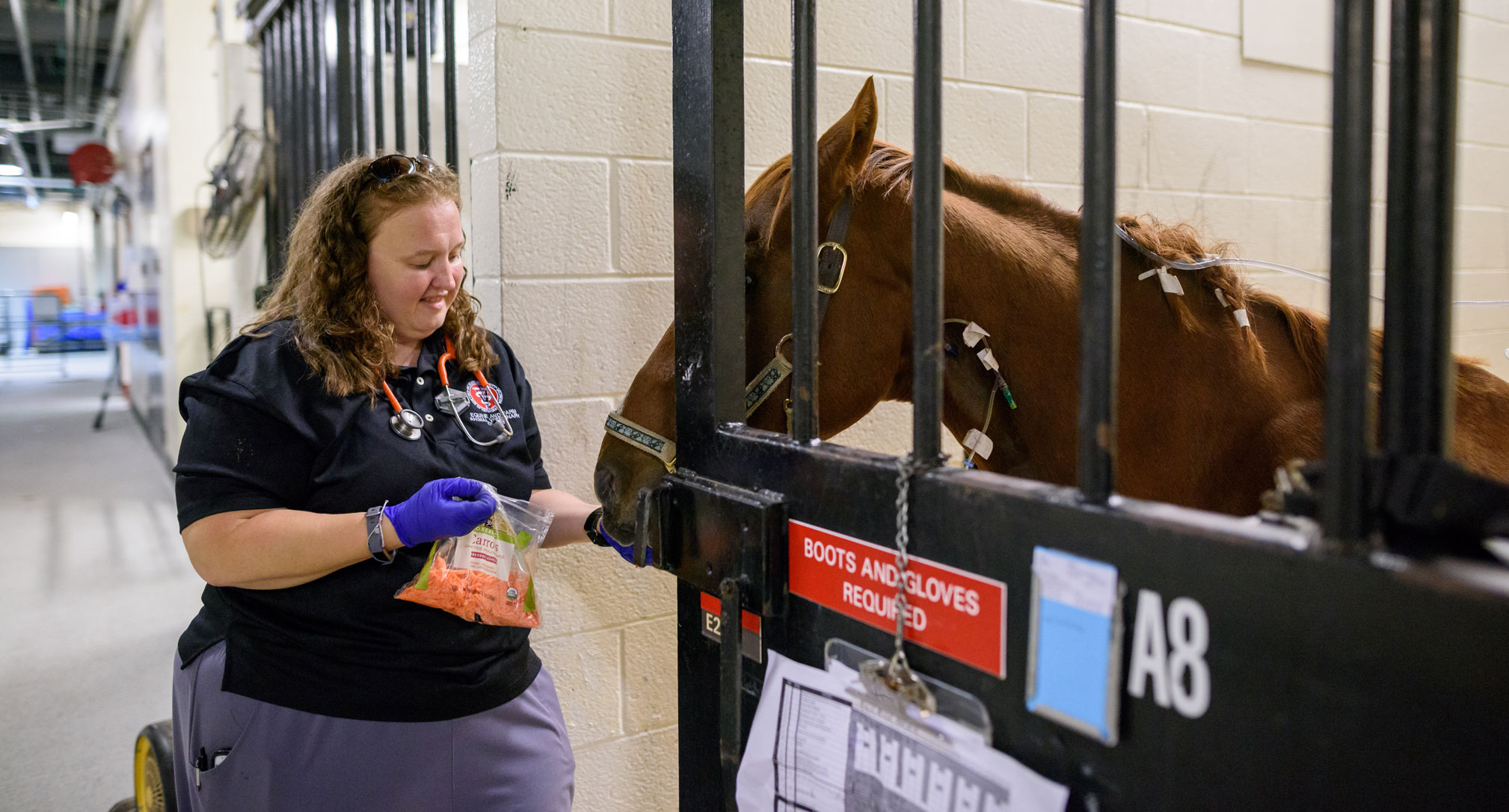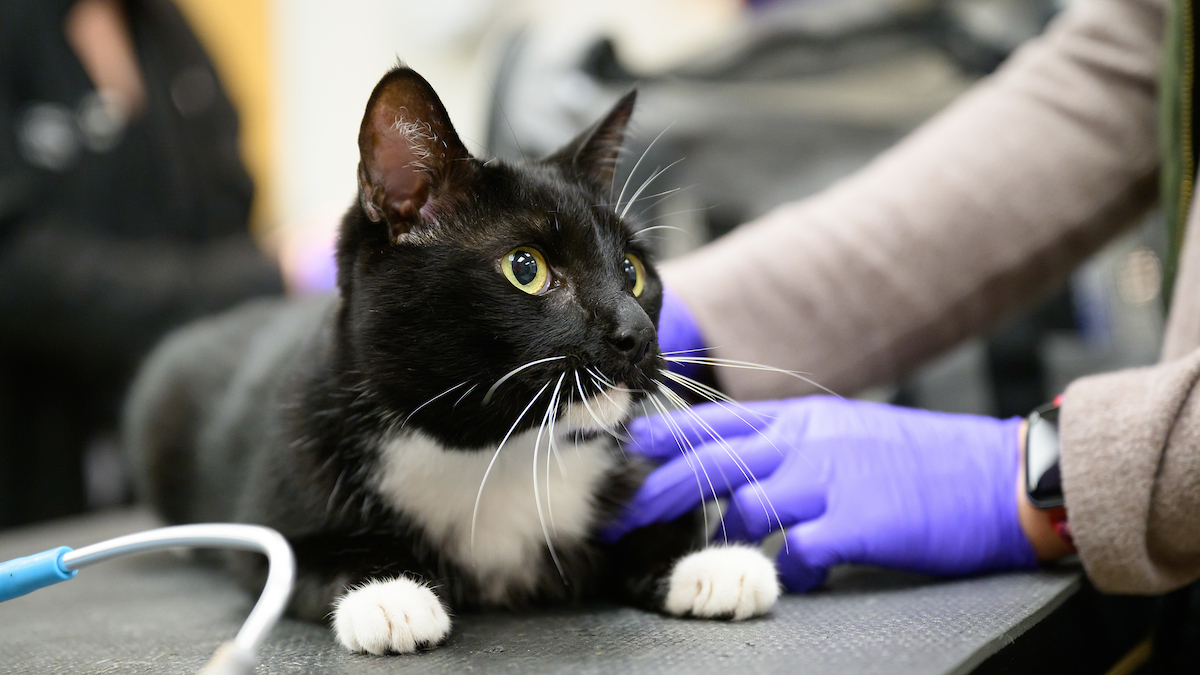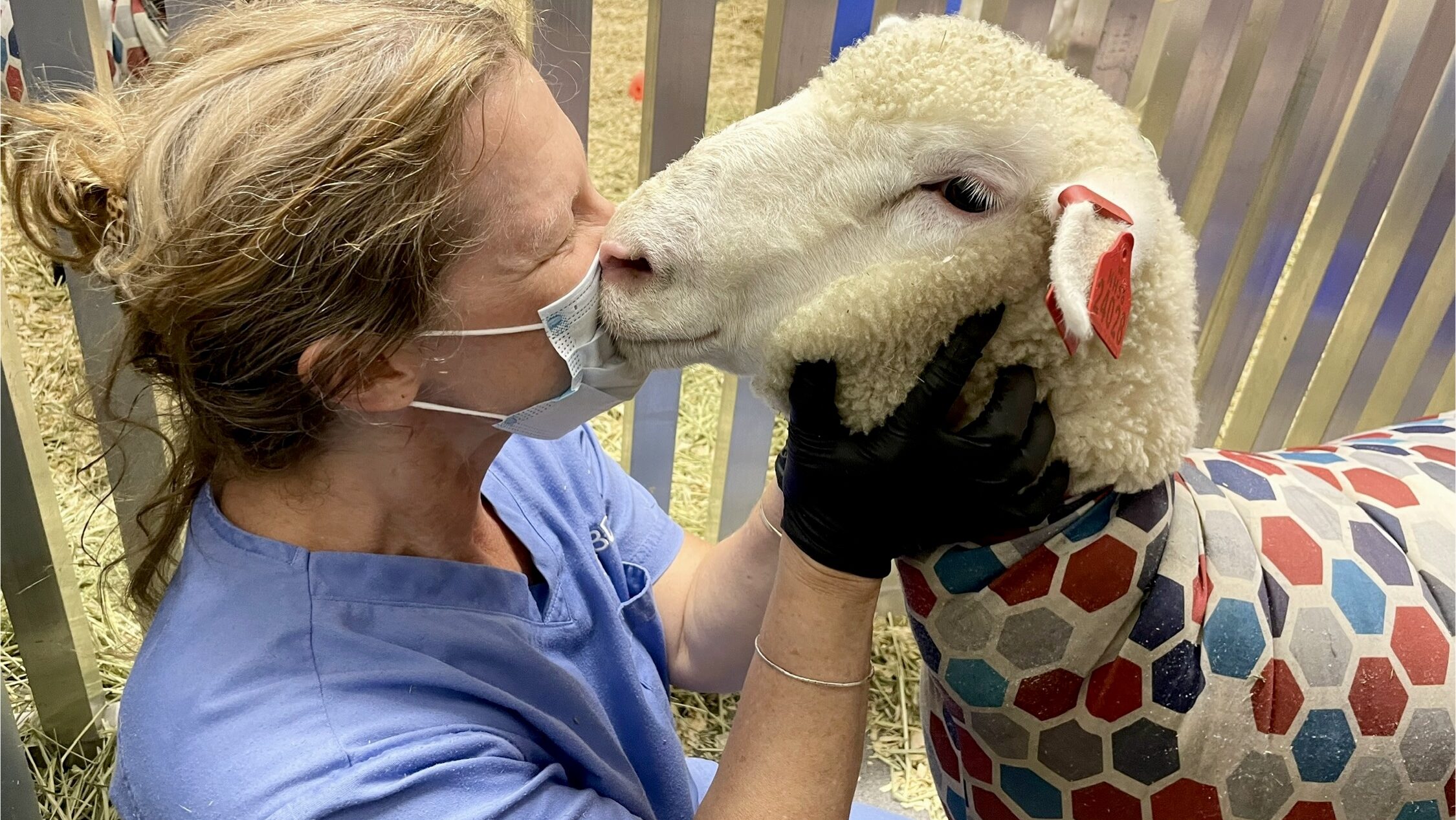National Veterinary Technician Week: Meet Heather Hopkinson

We continue our salute to veterinary technicians this week with the second in a series of profiles of some of the vet techs at the NC State Veterinary Hospital who play such a critical role in the healthcare of animal patients. These highly-trained professionals are comparable to nurses in human medicine, and their dedication and passion for their work is evident as they talk about what they do. The official dates of National Veterinary Technician Week are October 15-21.
Native North Carolinian Heather Hopkinson is a VTS-EVN — a veterinary technician specialist in equine veterinary nursing, and just so happens to be the only one in the state of North Carolina, and one of just over 20 in the nation. Currently in her eleventh year working at NC State, she also serves as president of the Academy of Equine Veterinary Nursing Technicians and vice-president of the North Carolina Association of Veterinary Technicians. In addition to horses, her duties at NC State includes farm animals. She is today’s subject for our “five questions for a vet tech” series.
What is your typical day like?
It’s like the line from the movie Forrest Gump — it’s like a box of chocolates, and you never know what you’re going to get. Our patients include horses, cattle, sheep, goats and alpacas. We do everything from hourly treatments, meds, IVs, nasal tubes and physical exams to emergencies, surgeries, and all kinds of technical things.
What is the most rewarding thing about your job?
Seeing the patients that come in very ill, and you put your heart and your passion into helping them, and then seeing them go home in five days or two weeks or even seven months later. And seeing how appreciative their families are of our team. It is definitely a team effort, especially with large animals, when it might take two or three or four people to even move them. Our doctors and techs and students all work together quite efficiently, especially in an emergency.
What is the hardest part of your job?
Well, it’s sort of the other side of my previous answer. It’s when our patients don’t make it. We bond with our patients and their families, and when they grieve, we do, too. It’s especially hard if one of our foals doesn’t make it. After you really put your heart into it, there can be some very tough decisions sometimes.
What made you want to go into this field?
I had a favorite horse growing up — Britt Underground. He actually belonged to a friend of mine, but I got to ride him, and in my heart, he was mine. He got colic and when he was admitted to the hospital here at NC State, they found that he had cancer. I saw the passion of that medical team. They loved him like I did. I was here every day for three weeks, and I saw all the techniques that they used to try to save him. Initially they gave him six months, but he lived three more years. That was it. I never wanted to be a vet, but I did want to do the hands-on work, and I wanted to know the families and owners. I searched for veterinary technician schools and after I was trained I did my internship right here at NC State. In fact, two of my classmates are still here, too.
What is your most memorable professional experience?
I’ve been here 11 years, but it actually came this spring. It was with an orphaned filly. She was hypoxic, and without her mom she was having trouble adjusting to the world. So I became her “mother.” I tried to teach her horse manners and generally care for her. I did that until we could find another horse mother to adopt her, to be her nurse mare, and then we let nature take its course. I really bonded with her and with her family. To see her able to go out the door after two weeks was really special.
[give url=”https://securelb.imodules.com/s/1209/giving/plain.aspx?sid=1209&gid=214&pgid=3813&cid=6343&appealcode=LB&bledit=1&sort=1&dids=6032″ headline=”Support Vet Techs” subheadline=”Continuing Education Fund” ]
~Steve Volstad/NC State Veterinary Medicine
- Categories:


